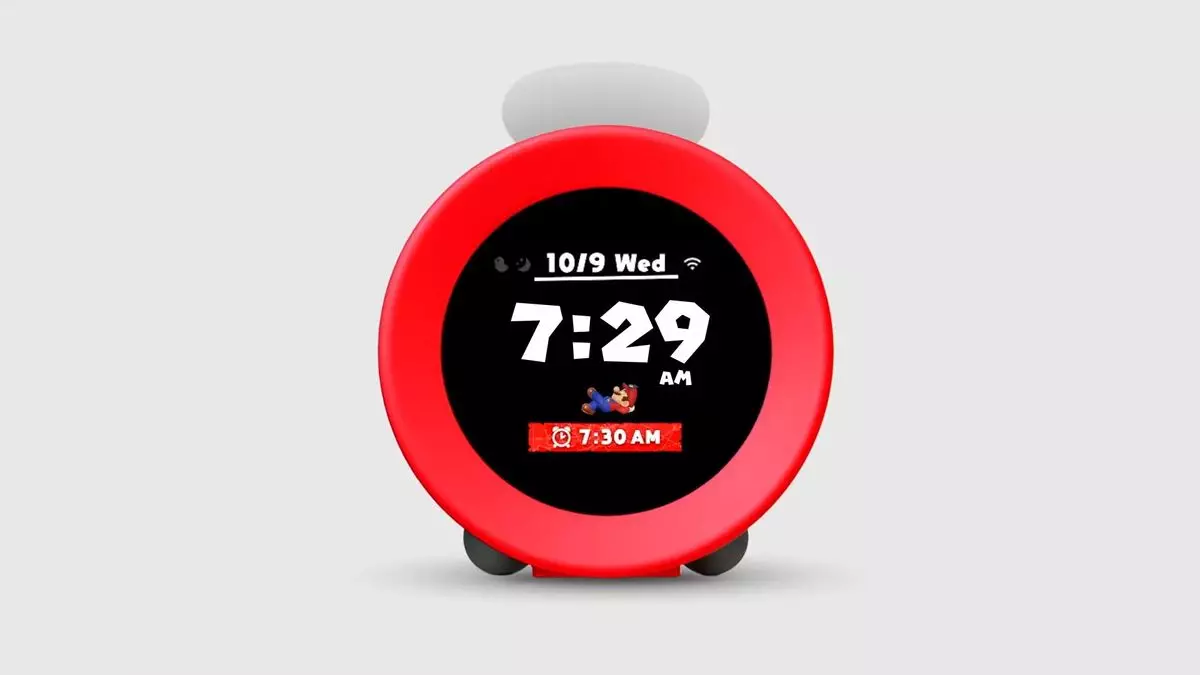In the ever-expanding universe of Nintendo merchandise, the recently unveiled Alarmo clock stands out with its unique blend of nostalgia and technology. From retro-inspired GameBoy mugs to themed board games, the breadth of products aimed at adult fans of the brand is nothing short of astonishing. Alarmo is poised to be a game-changer in the realm of user experience, particularly for those who cherish the vibrant sounds of Nintendo’s universe. Just imagine waking up to the cheery tunes from classics like Super Mario Odyssey or Pikmin 4 — a symphony that promises to start your day on a high note.
One of the most compelling aspects of Alarmo is its motion sensor feature, delivering sound effects that resonate with gamers as they stir from their slumber. Fans will be delighted to hear familiar sound bites like the coin-collecting chime from Mario or the dramatic splats from Splatoon, adding layers of interactivity that traditional alarm clocks simply cannot offer. The ingenuity doesn’t stop with just wake-up sounds; Alarmo also reassures users into sleep with game-themed lullabies and whimsical animations of beloved Nintendo characters, seemingly watching over you, hour by hour. This approach not only enriches the waking experience but creates a seamless transition between sleep and wakefulness, making every moment spent with the clock a mini-adventure in its own right.
Moreover, Alarmo doesn’t just stop at timekeeping and sound production. It has adopted a quasi-therapeutic role by tracking sleep patterns and movements. This aspect may raise eyebrows; is our obsession with sleep data going too far? While some may appreciate the data-driven insights, others might question the privacy issues that come alongside such functionality. Alarmo’s integration with the internet to allow the downloading of additional sounds could be perceived as both an exciting feature and a gimmick, potentially paving the way for a future filled with alarm clock downloadable content (DLC) – a concept that’s amusing yet simultaneously jarring in its implications.
Alarmo serves as an interesting case study within the broader context of gaming innovation. With its emphasis on lifestyle integration and interactivity, it reflects the shift in gaming culture towards creating experiences that extend beyond traditional gaming sessions. It highlights how brands like Nintendo are not just catering to gamers but also attempting to engage them in their daily lives. Whether or not Alarmo meets expectations remains to be seen; however, it certainly raises the question of what we should expect next from the gaming giant. While fans eagerly await the next console announcement, Alarmo reminds us that there is much to explore within the realm of everyday life.
Nintendo’s Alarmo is not just an alarm clock; it’s a playful homage to the iconic sounds and characters of the gaming world that many hold dear. As it adds a dash of whimsy and nostalgia to our morning routines, it simultaneously poses questions about the intersection of gaming, lifestyle, and privacy.


Leave a Reply